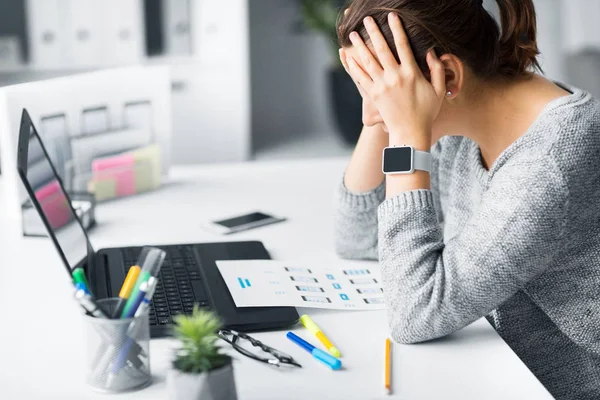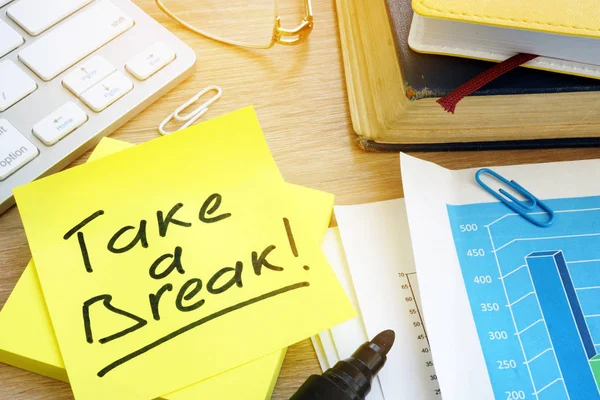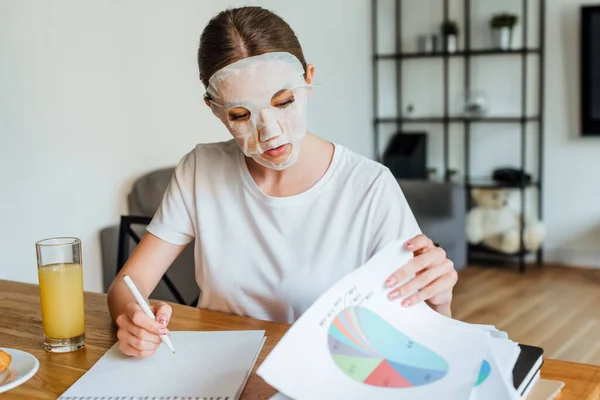
How to Get Rid of Stress and Promote Relaxation in Your Life
Stress is a natural part of life. Whether it's caused by work, relationships, or just the everyday pressures of modern living, it's something that we all have to deal with from time to time. However, when stress becomes chronic, it can have a detrimental effect on our physical and mental health, leading to anxiety, depression, and other serious conditions. That's why it's important to find ways to manage stress and promote relaxation in our lives.
Now, I know what you're thinking. "Great, another blog post telling me to meditate and exercise." But bear with me! While those are certainly important ways to manage stress, they're not the only options. In this article, I'm going to share with you some creative, unconventional ways to get rid of stress and promote relaxation in your life. And yes, some of them might even be a little bit funny.
So, if you're tired of hearing the same old advice and want to try something new, this article is for you. From taking breaks to practicing self-care, we're going to explore some practical and effective ways to de-stress and unwind. So sit back, take a deep breath, and get ready to learn some fun and unusual ways to promote relaxation in your life. Trust me, your mind and body will thank you for it!
Identify the Sources of Stress

When it comes to managing stress, the first step is to identify the sources of stress in your life. Stress can come from many different areas, including work, relationships, finances, health, and even the news. It's important to recognize these stressors so that you can take steps to address them and reduce their impact on your life.
One technique for identifying sources of stress is to keep a stress diary. This involves recording your stress levels throughout the day, along with the specific situations or events that trigger them. By doing this, you can start to see patterns and identify common stressors. For example, you might notice that your stress levels increase every time you have a meeting with your boss, or that you feel anxious every time you check your email.
Another way to identify sources of stress is to pay attention to your physical and emotional reactions. Stress can manifest in a variety of ways, including headaches, muscle tension, stomach problems, irritability, and mood swings. By tuning into these symptoms, you can start to pinpoint the situations or events that are causing them. For example, if you notice that you always get a headache after spending time with a particular friend, that could be a sign that this relationship is a source of stress in your life.
It's also important to recognize the different types of stressors. There are acute stressors, which are short-term and immediate, such as a deadline at work or an argument with a friend. Chronic stressors, on the other hand, are ongoing and long-term, such as a difficult work situation or a health problem. By understanding the types of stressors in your life, you can start to develop strategies for managing them.
In summary, identifying sources of stress is an essential step in managing stress and promoting relaxation in your life. By keeping a stress diary, paying attention to your physical and emotional reactions, and recognizing different types of stressors, you can start to take control of your stress levels and find ways to reduce their impact on your life.
Exercise Regularly

Exercise is one of the most effective ways to reduce stress and promote relaxation in your life. When you exercise, your body releases endorphins, which are natural mood boosters that can help to reduce anxiety and improve your overall sense of well-being. Additionally, regular exercise can help to reduce the physical symptoms of stress, such as muscle tension and headaches.
Now, before you start picturing yourself running a marathon or spending hours at the gym, let me reassure you that exercise doesn't have to be strenuous or time-consuming to be effective. In fact, even a short walk or gentle yoga practice can have significant benefits for stress reduction.
The key is to find an exercise routine that works for you and your lifestyle. If you're new to exercise, start with something simple, such as a daily walk around your neighborhood or a beginner's yoga class. As you become more comfortable with exercise, you can gradually increase the intensity and duration of your workouts.
It's also important to find activities that you enjoy. Exercise shouldn't be a chore or something that you dread doing. Instead, it should be a fun and enjoyable way to take care of your body and mind. If you hate running, don't force yourself to do it. Try swimming, cycling, dancing, or any other activity that you find enjoyable and energizing.
Another great way to incorporate exercise into your routine is to make it social. Join a sports team, take a group fitness class, or simply invite a friend to go for a walk with you. Not only will this help to make exercise more fun, but it can also provide social support and motivation.
In summary, regular exercise is a powerful tool for managing stress and promoting relaxation in your life. By finding an exercise routine that works for you and your lifestyle, and making it enjoyable and social, you can start to experience the physical and mental benefits of exercise. So, whether it's a quick walk around the block or a high-intensity workout, get moving and start feeling better today!
Practice Mindfulness and Meditation

In addition to exercise, mindfulness and meditation are powerful tools for reducing stress and promoting relaxation in your life. Mindfulness is the practice of being fully present and aware of your thoughts, feelings, and surroundings in the moment, without judgment or distraction. Meditation, on the other hand, involves focusing your attention on a specific object or activity, such as your breath or a mantra, in order to achieve a state of mental clarity and calm.
Both mindfulness and meditation have been shown to have numerous benefits for stress reduction and overall well-being. For example, research has found that regular mindfulness practice can help to reduce anxiety, depression, and stress levels. It can also improve sleep quality and immune function, as well as increase feelings of empathy and compassion.
One simple way to incorporate mindfulness and meditation into your routine is to start with just a few minutes of practice each day. Find a quiet and comfortable space where you won't be disturbed, and sit or lie down in a comfortable position. Then, close your eyes and focus your attention on your breath. Notice the sensation of the air moving in and out of your body, and try to let go of any distracting thoughts or worries.
If you find it difficult to quiet your mind, you might find it helpful to use a guided meditation app or listen to calming music. There are also many different types of meditation to choose from, including mantra meditation, loving-kindness meditation, and body scan meditation, so experiment with different styles to find what works best for you.
In addition to formal meditation practice, you can also incorporate mindfulness into your daily activities. For example, try to focus on the present moment while you're brushing your teeth, washing dishes, or taking a shower. Notice the sights, sounds, and sensations around you, and try to let go of any distractions or worries.
In summary, practicing mindfulness and meditation can be a powerful way to reduce stress and promote relaxation in your life. By starting with just a few minutes of practice each day, and incorporating mindfulness into your daily activities, you can start to experience the many benefits of these practices for your physical and mental well-being.
Get Enough Sleep

Getting enough sleep is essential for managing stress and promoting relaxation in your life. When you're sleep-deprived, your body produces more stress hormones, such as cortisol, which can make it difficult to relax and unwind. Additionally, lack of sleep can lead to irritability, mood swings, and difficulty concentrating, which can make it harder to cope with stressors.
To ensure that you're getting enough sleep, aim for 7-9 hours of sleep per night, depending on your individual needs. Make sleep a priority by setting a regular bedtime and wake-up time, and sticking to it as much as possible, even on weekends. This will help to regulate your body's internal clock and improve the quality of your sleep.
It's also important to create a relaxing sleep environment. Keep your bedroom cool, quiet, and dark, and invest in a comfortable mattress and pillows. Avoid using electronic devices, such as smartphones and laptops, before bedtime, as the blue light they emit can interfere with your body's production of melatonin, a hormone that helps regulate sleep.
If you have trouble falling or staying asleep, try relaxation techniques such as deep breathing, progressive muscle relaxation, or visualization exercises. You can also try drinking a cup of chamomile tea or taking a warm bath before bedtime to help you relax.
Finally, try to establish a consistent bedtime routine. This could include activities such as reading a book, listening to calming music, or practicing gentle yoga stretches. By creating a relaxing and predictable bedtime routine, you can signal to your body that it's time to unwind and prepare for sleep.
In summary, getting enough sleep is crucial for managing stress and promoting relaxation in your life. By prioritizing sleep, creating a relaxing sleep environment, practicing relaxation techniques, and establishing a consistent bedtime routine, you can improve the quality and quantity of your sleep, and better cope with the stressors of daily life.
Eat a Healthy Diet

Maintaining a healthy diet is essential for managing stress and promoting relaxation in your life. When you eat a balanced and nutritious diet, your body is better equipped to cope with stressors and maintain a sense of calm and balance.
One key element of a healthy diet is consuming a variety of fruits and vegetables. These foods are rich in vitamins, minerals, and antioxidants that help to reduce inflammation in the body and support overall health. Additionally, consuming whole grains, lean protein, and healthy fats can help to stabilize blood sugar levels and provide sustained energy throughout the day.
In contrast, consuming large amounts of processed and high-fat foods can lead to feelings of sluggishness and lethargy, which can exacerbate stress and anxiety. Additionally, consuming excessive amounts of caffeine or alcohol can interfere with sleep and contribute to feelings of stress and anxiety.
To ensure that you're eating a healthy diet, aim to consume a variety of whole foods, including fruits, vegetables, whole grains, lean protein, and healthy fats. Avoid processed and high-fat foods as much as possible, and limit your intake of caffeine and alcohol.
Additionally, try to establish regular eating patterns and avoid skipping meals. When you go too long without eating, your blood sugar levels can drop, which can lead to feelings of irritability and fatigue. By eating regular, balanced meals and snacks throughout the day, you can help to maintain stable blood sugar levels and provide your body with the nutrients it needs to cope with stress.
Finally, make sure to stay hydrated by drinking plenty of water throughout the day. Dehydration can lead to feelings of fatigue and irritability, which can make it harder to cope with stress.
In summary, maintaining a healthy diet is crucial for managing stress and promoting relaxation in your life. By consuming a variety of whole foods, avoiding processed and high-fat foods, limiting your intake of caffeine and alcohol, establishing regular eating patterns, and staying hydrated, you can support your body's ability to cope with stress and maintain a sense of calm and balance.
Take Breaks

Taking breaks is an important strategy for managing stress and promoting relaxation in your life. When you're busy and overwhelmed, it can be tempting to try to power through and get everything done at once. However, this can actually increase feelings of stress and anxiety, and make it harder to concentrate and be productive in the long run.
Taking regular breaks throughout the day can help to improve your mood, boost your energy levels, and increase your productivity. This is because breaks allow you to recharge your mental and physical batteries, and give your brain a chance to rest and reset.
To incorporate breaks into your day, try setting a timer for every 60-90 minutes of work, and taking a 5-10 minute break when the timer goes off. During your break, do something that helps you relax and recharge, such as taking a walk, doing some stretching exercises, listening to calming music, or practicing deep breathing.
Additionally, it's important to take longer breaks throughout the day, such as a lunch break or a mid-afternoon break. Use these longer breaks to engage in activities that you enjoy and that help you to relax and recharge, such as reading a book, taking a yoga class, or meeting up with a friend for coffee.
Finally, it's important to take breaks from technology, such as your phone or computer. Constantly checking email or social media can increase feelings of stress and anxiety, and make it harder to relax and unwind. Try to establish boundaries around your use of technology, such as turning off notifications or setting aside designated times of day to check email or social media.
In summary, taking breaks is a crucial strategy for managing stress and promoting relaxation in your life. By incorporating regular breaks throughout the day, taking longer breaks to engage in enjoyable activities, and taking breaks from technology, you can improve your mood, boost your energy levels, and increase your productivity, while also reducing feelings of stress and anxiety.
Practice Self-Care

Practicing self-care is an essential part of managing stress and promoting relaxation in your life. Self-care involves taking time to prioritize your physical, mental, and emotional health, and engaging in activities that help you feel your best.
One key element of self-care is taking care of your physical health. This includes getting enough sleep, eating a healthy diet, and engaging in regular exercise. Additionally, it can involve pampering yourself with activities such as taking a warm bath, getting a massage, or practicing yoga.
Another important aspect of self-care is taking care of your mental and emotional health. This can include engaging in activities that help you relax and unwind, such as reading a book, practicing mindfulness, or spending time in nature. Additionally, it can involve seeking support from others when you need it, such as talking to a friend or therapist about your feelings.
Self-care can also involve setting boundaries and saying no to activities or commitments that feel overwhelming or stressful. By prioritizing your own needs and boundaries, you can reduce feelings of stress and anxiety, and create a sense of balance and calm in your life.
Finally, self-care can involve engaging in activities that bring you joy and fulfillment. This might include pursuing hobbies or interests, spending time with loved ones, or volunteering in your community. By engaging in activities that give you a sense of purpose and meaning, you can improve your overall well-being and reduce feelings of stress and anxiety.
In summary, practicing self-care is a crucial strategy for managing stress and promoting relaxation in your life. By prioritizing your physical, mental, and emotional health, setting boundaries, and engaging in activities that bring you joy and fulfillment, you can reduce feelings of stress and anxiety, and create a sense of balance and calm in your life. Remember that self-care is not selfish, but rather a necessary part of maintaining your overall well-being.
Manage Time Effectively

Managing time effectively is an important strategy for managing stress and promoting relaxation in your life. When you're constantly rushing and feeling like you never have enough time, it can increase feelings of stress and anxiety, and make it difficult to feel relaxed and focused.
To manage time effectively, it's important to prioritize your tasks and responsibilities, and create a schedule that allows you to balance work and leisure activities. This can involve setting realistic goals and deadlines, and breaking larger tasks into smaller, manageable chunks.
Additionally, it's important to eliminate distractions and focus on the task at hand. This might involve turning off your phone or email notifications while you work, or working in a quiet space where you can concentrate without interruption.
It's also helpful to take breaks throughout the day, as we discussed earlier, to recharge your mental and physical batteries and maintain your energy levels. By taking regular breaks, you can increase your productivity and focus, while also reducing feelings of stress and anxiety.
Finally, it's important to learn to say no to activities or commitments that feel overwhelming or stressful. This can involve setting boundaries around your time and energy, and learning to prioritize your own needs and well-being.
By managing your time effectively, you can create a sense of balance and control in your life, reduce feelings of stress and overwhelm, and promote relaxation and well-being.
In summary, managing time effectively is a crucial strategy for managing stress and promoting relaxation in your life. By prioritizing tasks and responsibilities, eliminating distractions, taking regular breaks, and setting boundaries around your time and energy, you can reduce feelings of stress and anxiety, and create a sense of balance and calm in your life. Remember that effective time management is a skill that takes practice and patience, but the rewards are well worth the effort.
Seek Support

Seeking support is an important part of managing stress and promoting relaxation in your life. When you're feeling overwhelmed or stressed out, it can be helpful to talk to someone who can offer support and guidance.
There are many different sources of support available, including friends, family, coworkers, and mental health professionals such as therapists or counselors. It's important to find someone you feel comfortable talking to and who can offer you the type of support you need.
Talking to someone about your feelings and experiences can help you gain a new perspective on your situation, and provide you with emotional support and validation. Additionally, seeking professional help can give you access to strategies and tools for managing stress and anxiety, and help you develop coping skills that will serve you well in the long term.
It's also important to seek support from others when you're going through a particularly challenging time or experiencing a major life transition, such as a divorce, job loss, or illness. Having a strong support system can help you navigate these challenges with more ease and resilience, and provide you with a sense of comfort and security.
Finally, it's important to remember that seeking support is not a sign of weakness, but rather a sign of strength and self-awareness. We all need help and support from others at times, and reaching out for help is a courageous and important step towards improving your well-being.
In summary, seeking support is a crucial strategy for managing stress and promoting relaxation in your life. By talking to someone who can offer you support and guidance, whether it's a friend, family member, coworker, or mental health professional, you can gain a new perspective on your situation, develop coping skills, and feel more resilient and empowered. Remember that seeking support is a sign of strength, and that there are many sources of help and support available to you when you need it.
Conclusion
In conclusion, stress is a common part of life, but it doesn't have to control you. By implementing these strategies, you can manage stress and promote relaxation in your life.
First, identifying the sources of stress can help you understand and manage your stress triggers. This might involve making changes to your environment or relationships, or developing new coping strategies to manage stressful situations.
Regular exercise can also be an effective way to manage stress and promote relaxation, by reducing tension and releasing endorphins that improve mood and energy levels.
Mindfulness and meditation can help you cultivate awareness and focus, and reduce feelings of anxiety and overwhelm. By practicing mindfulness and meditation regularly, you can learn to respond to stressful situations with greater calm and clarity.
Getting enough sleep, eating a healthy diet, and taking breaks throughout the day are also important strategies for managing stress and promoting relaxation. By prioritizing self-care and making time for rest and rejuvenation, you can maintain your energy levels and reduce feelings of stress and burnout.
Effective time management can also help you reduce feelings of overwhelm and increase productivity, while setting boundaries and seeking support can provide you with the emotional and practical support you need to navigate life's challenges.
Remember, managing stress and promoting relaxation is an ongoing process, and it's important to be patient and kind to yourself as you develop new habits and strategies. By implementing these tips and practicing self-care regularly, you can create a sense of balance and calm in your life, and enjoy greater well-being and happiness.
 Reviewed by jadan
on
March 13, 2023
Rating:
Reviewed by jadan
on
March 13, 2023
Rating:




No comments: